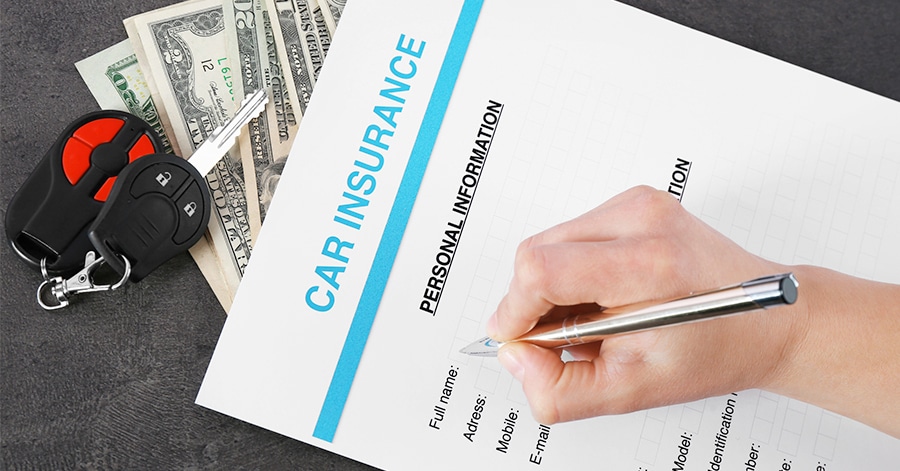Is it Best to Buy Full Auto Insurance Coverage?
 Each state has minimum auto insurance requirements, but it’s typically not enough. Don’t make the mistake of sticking to the state’s minimum requirements. You may find yourself in an unpleasant financial situation as a result.
Each state has minimum auto insurance requirements, but it’s typically not enough. Don’t make the mistake of sticking to the state’s minimum requirements. You may find yourself in an unpleasant financial situation as a result.
[sc_content_link label=”Get today’s insurance rates.” cat=”auto”]
Does this mean you need full auto insurance coverage? Not everyone will benefit from full auto coverage. Below we discuss the definition of full coverage, who needs it, and other factors you should consider.
How Does Full Auto Insurance Coverage Work?
First, you should know that no two insurance companies have the same definition for full auto insurance coverage. However, most companies include:
- Liability insurance – This coverage pays for the financial damages to other cars in an accident that you caused. It should cover the car and the people in it, should they need to go to the hospital. At a minimum, a full auto insurance policy will include the state minimum liability coverage required.
- Collision insurance – This covers your car should you cause an accident. It covers the cost of repair or replacement of your car for losses due to an accident. It doesn’t cover things like damage from a storm, fire, or theft.
- Comprehensive insurance – This covers your car from any type of damage that occurs from anything except an accident. Storms, fire, theft, vandalism, and shattered windshields, are just a few of the things comprehensive insurance covers.
Some full auto insurance policies include medical coverage, but not all do, so don’t assume. Medical coverage covers you and the passengers in your vehicle should you be hurt in an accident. At the very least, most policies, include Personal Injury Protection as required by state law.
Most car insurance companies include at least the above types of coverage and consider it full. You may notice that there are quite a few types of coverage missing. If you think ‘full’ means the inclusion of every coverage available, you are mistaken. Full is a subjective term. If you need any of the following coverages, make sure you read the fine print or ask if it’s included:
- Towing or Roadside Assistance
- Uninsured Motorist
- Underinsured Motorist
- Car Rental
- Gap Insurance
[sc_content_link label=”Shop and compare insurance quotes.” cat=”auto”]
Is Full Auto Coverage Required?
If you finance your car, the bank will require proof of insurance. This protects their investment in your vehicle. If you total your car or it is stolen and you don’t have insurance, both you and the bank lose a lot on the deal.
Banks typically require what they call ‘full auto insurance,’ but it’s not what you think. Banks require you to carry adequate liability insurance, comprehensive insurance, and collision insurance. They don’t require the other ‘extras’ we spoke about above.
Does Full Auto Insurance Cover Repairs?
Full auto insurance may cover repairs in certain situations, just not all of them. For example, auto insurance doesn’t cover preventative maintenance or repairs due to normal wear and tear. They do, however, cover repairs that are due to theft, vandalism, or an accident.
Your collision insurance covers any repairs necessary after a collision. Your comprehensive insurance covers repairs that are necessary from things like theft, vandalism, or a tree falling on your car. As long as the insurance adjuster agrees that the repairs are necessary as a result of the incident and the incident is covered under one of your coverages, you’ll get help.
Who Needs Full Auto Insurance?
Again, since every insurance company has a different definition of full auto insurance, it really depends on what type of coverage you need. But, most people can benefit from proper auto insurance coverage including:
- Drivers with a car loan –
- Drivers that can’t afford to replace their car
- Drivers that drive a lot
If you are on the road a lot and you don’t have enough money to cover your car, consider full auto insurance. It will help you in the face of disaster, even in situations that you’d never fathom could happen to you.
In reality, anyone can benefit from full auto insurance. Unless you drive a car that isn’t worth much and you have the money to replace it, you should carry at least enough insurance to cover you in any circumstance. At a minimum, you need liability insurance, but most drivers benefit from taking it further.
[sc_content_link label=”Get the right insurance coverage.” cat=”auto”]
